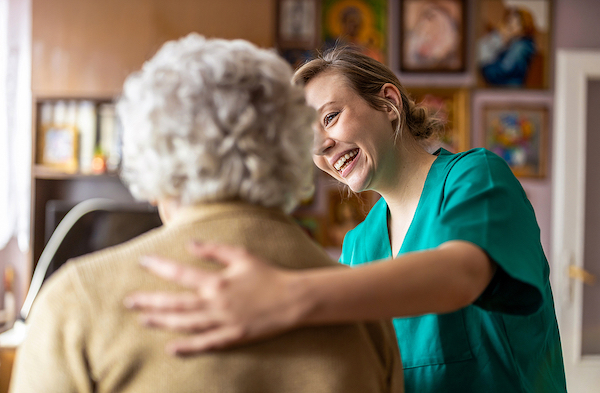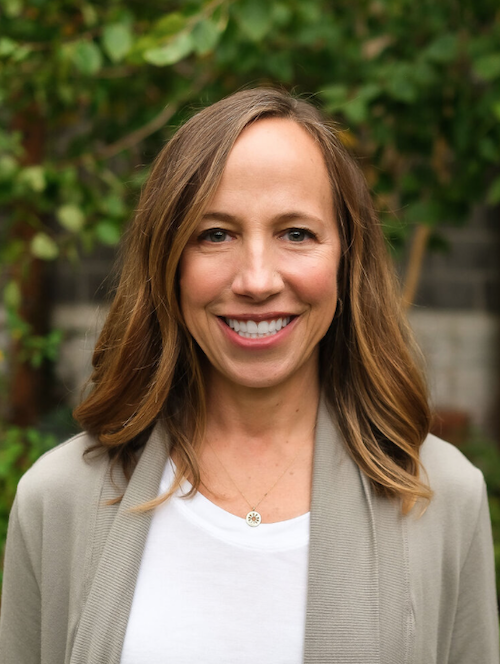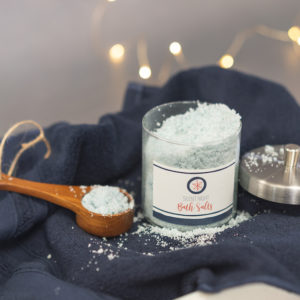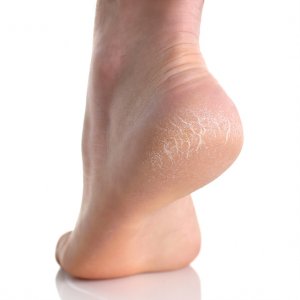
Taking care of someone with a terminal illness is overwhelming and exhausting. There is so much physical labor involved in caring for a hospice patient. Add to that the devastating grief insidiously creeps into your bones. Self-care is critical to your well-being as a caregiver. When you take care of yourself, you will be physically and emotionally healthy enough for the work of tending, loving, and caring for another human being. It will also help you to stay healthy, grounded, and kind. I wish I had been more cognizant of this when I cared for my mom during her battle with lung cancer. But I plowed through, did my best, and probably drank too much red wine. Here are some ideas to maintain your own health and wellness while increasing your capacity to be a compassionate caregiver.
During my time with my mom, I remember feeling so tired I wanted to cry. I took time off work, left my husband behind in Portland, and moved into my childhood home with my year-old son Jack. I remember one morning I put Jack down for his nap. Then I went straight to Mom’s room to help with her shower. When I got her safely back in bed, I told her I was going to check on Jack. I walked quietly into my childhood bedroom and lay down next to the playpen where he slept. As soon as my body started to relax, he uttered his only word… “Dada.” I silently cursed his dada, who was up in Portland…and not here to relieve me…I kept my eyes closed, pretending that if I could not see Jack, he could not see me. Jack started yelling and banging his damn binkies on the edge of the playpen, and my rest was officially over. I wanted to cry.
Don’t go it alone.
The most important way to care for yourself is to ask for help. Ideally, set up a schedule to have others involved in the care of your loved one so you can anticipate your time off and plan outings. Caregiving is a 24/7 commitment. Even when the patient does not directly need you, there is still plenty to do. Keeping up with shopping, finances, cleaning, and trips to the pharmacy is an added load. People want to help, but sometimes they do not know what to do: You need to tell them specifically. This is an important aspect of self care for the caregiver.
I believed my way of caring for my mom was infinitely better than anyone else and therefore had a hard time leaving her side. And when I did leave, I felt guilty. I even skipped an important wedding, when my siblings could have easily tended to my mom. Over the years I have seen that caregiving inequity can lead to bitterness and resentment among family members, and it also deprives others of the gift of caring for a dying loved one (even if they don’t do it “perfectly”— ahem, “my way”). If you can step back and see this time as a gift for everyone, it may help you to share the load.

Make time to care for yourself.
Even if it’s just one hour a day, an afternoon a week, or maybe five days in a row. Alternate days with family members or friends so everyone gets an opportunity to care for your loved one, and everyone gets some space to breathe. Ideally, develop a daily practice that can help center you: breathing practices, yoga, naps, stretching, meditation, or walking in nature. Yoga and time in nature can increase your capacity for altruism. A daily meditation practice can foster equanimity and help you feel more centered and less reactive. Intentional breathwork can elicit the body’s relaxation response, which counters your fight-or-flight response. All good aspects of self care when you are a caregiver.
Connect with your family and friends.
It is easy to feel isolated when caring for someone you love. Connection is critical and allows your friends and family to steep in your reality, which often brings people closer. Invite your friends and family into your house and into your world. I always need another human to help me reposition a patient in bed, change a brief, or give a bath. When more people are involved in the care of your loved one, you will share stories, laughter, and tears. This is an important part of your grief journey and the integration of this loss.
Utilize the hospice team.

Families often forget that the hospice team is there for the patient AND the family. While the nurse cannot provide medication for your anxiety (I have been asked many times), they can educate you about the disease process and medication management. This can help to minimize your anxiety as a caregiver. The social worker is an excellent resource for processing your grief and finding caregiving services, alternative living situations if needed, or financial resources for your loved one. The CNA can alleviate some of the physical burden by bathing your loved one 2-3 times a week. Getting the CNA involved in the patient’s care early on allows them to establish a relationship, which will increase the patient’s comfort. Hospice chaplains can help you process the murky mysterious questions and find meaning in this experience.
All emotions are normal and ok.
It is easy to bottle up your emotions—especially anger and grief—because these feelings can catch you by surprise and leave you feeling out of control. When you start to feel overwhelmed by your emotions, take a little break. Finding a quiet place to sit with your emotions for even five minutes may help them to soften and subside a bit. Compassionately be with your emotions (“Oh, there you are again anger”; “Ooh, exhaustion, hi honey”). Take intentional breaths and imagine breathing into whatever body spaces these emotions are occupying. My emotions land in my throat and my jaw. When you give your emotions the time and attention they deserve, you may find you just need to take a walk, take a nap, or call a friend. If some emotions are a little too sticky, perhaps seek out a counselor or friend to process your feelings. You will be a more effective caregiver when you invest some time into self care.
Self care for the caregiver is NOT selfish!
The most important thing is to not feel guilty about caring for yourself at this time. When you feel rested and grounded, it will make you a much better, kinder, and more loving caregiver. We only get one shot at sending off our loved one; we want to do this with as much grace and compassion as possible.

Beth Cavenaugh is a certified hospice and palliative care nurse and educator with over 14 years of experience in caring for terminally ill patients. She has been a registered nurse for over 24 years and holds a bachelor’s degree in nursing from Creighton University. Beth has supported hundreds of patients and their families at inpatient units, in the home setting, and behind the scenes in hospice care. Compassion, patient autonomy, and transparent communication are at the core of her care philosophy. Check out Beth’s book, Some Light at the End: An End-of-Life Guidebook for Patients and Their Caregivers.
Need a little emotional support? Check out this post for Essential Oils for Overcoming Grief.











